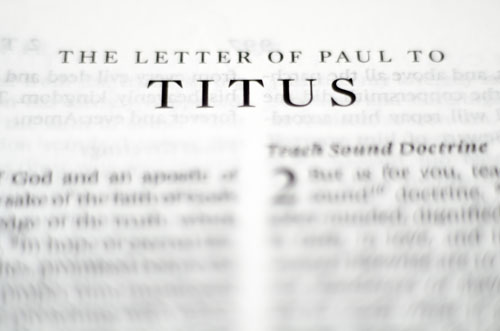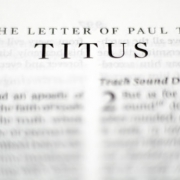The Overflowing Heart
/2 Comments/in For Pastors, Preachers, Bible Teachers/by David GuzikMy heart is overflowing with a good theme;
I recite my composition concerning the King;
My tongue is the pen of a ready writer.
Psalm 45:1

Many of you have preached and served God, His people, and a needy world over the weekend. Here’s a quick thought that might bless and brighten your Monday.
I love the song of the Sons of Korah in Psalm 45. The whole Psalm is so focused on the greatness of Messiah the King, and upon His bride. For a quick morning encouragement, just take a look at verse 1:
My heart is overflowing with a good theme;
I recite my composition concerning the King;
My tongue is the pen of a ready writer.
I don’t know how your summer is going, and what this season of ministry is like for you. Ministry definitely has its seasons. I have a big heart for those who are in difficult seasons of serving God. But I’m also happy to say that not all seasons are difficult; sometimes our heart is overflowing with a good theme.
Let’s be grateful for those good seasons of serving God, and let’s especially do what Psalm 45 guides us to do: put our focus on the King in those times.
Did you know that there are many people who can handle adversity much better than they can handle success? Sometimes it is the overflowing season that makes our focus drift. In the hard times you kept your focus on God because you knew you had to, or you might not make it through! But in the overflowing season, it’s easy to relax too much (or in the wrong way) and let our focus wander.
It doesn’t have to be that way. When your heart is overflowing with a good theme because your preaching or teaching seems blessed, because budgets are being met, because the work of the Holy Spirit is evident, because there is peace among the congregation, or for whatever other reasons, just let it overflow in the right direction. Direct the overflow to the King. Remember that the blessing is there because He is so wonderful, not because you are so wonderful!
You know how to draw near to God in adversity, now draw near to Him in gratitude. In a season of overflow, remember that it takes a steady hand to hold a full cup – even more so a cup that is overflowing! Focused on the King, your hand will be steady, and the season of overflow will be as spiritually healthy for you as a season of difficulty.
Enjoy the overflow.
Blessings to You in Jesus’ Name – David Guzik
Click Here to Receive Email from David for Pastors, Preachers, and Bible Teachers
All Things Are Pure
/1 Comment/in Weekly Devotional/by David GuzikTo the pure all things are pure, but to those who are defiled and unbelieving nothing is pure; but even their mind and conscience are defiled. (Titus 1:15)
In his work as a pastor and leader on the island of Crete, Titus had to deal with a lot of difficult people. Some of those people were legalistic; they saw life with God mainly as a list of rules to keep more than a relationship of trust and love.

The people with such an emphasis on rules could find something impure in just about everything. To them, anyone who enjoyed their food was a glutton. Anyone who enjoyed sex in marriage was filled with lust. Anyone who rested for a day was lazy. Anyone who did good business was greedy. For them, the religious life was all about what you didn’t do, couldn’t do, and shouldn’t do.
That’s why Paul reminded us, “To the pure, all things are pure.” Those legalists had polluted minds (defiled) and walked by fear more than by faith (unbelieving). They denied that Christians could enjoy the basic, good, and godly pleasures of this world that are not sin.
As a pastor, Timothy had to deal with the same kind of people. Paul warned Timothy about those forbidding to marry, and commanding to abstain from foods which God created to be received with thanksgiving by those who believe and know the truth (1 Timothy 4:3). Paul knew that if a Christian walked in the purity of Jesus, these things were pure to him. But to those of a legalistic mind (those who are defiled and unbelieving), they seemed to believe nothing is pure. The problem was with their defiled and unbelieving minds and consciences, not with the things themselves.
It’s important to not take this in a wrong way. Yes, Paul wrote: “all things are pure.” But of course, Paul did not mean that obviously sinful things (pornography, illicit drugs, and the like) are pure. Paul has in mind those things which are permitted by Scripture but forbidden by legalists in a mistaken attempt to earn favor with God.
So, Paul would say: “Enjoy that meal, and thank God for it.” He would say, “Enjoy your rest, and thank God for it.” That same principle applies to all good and legitimate pleasures God gives us.
I can’t confirm the source, but I heard it once said that Jewish rabbis taught that on the day of judgment, we will have to give account for all the legitimate pleasures God gave to us that we never enjoyed. You won’t find that specific statement in the Bible, but there is some truth to that thought.
This is our Father’s world. He has filled it with many legitimate pleasures. We should receive them and enjoy them with gratitude, and if a legalist tries to make us feel guilty we remember, “To the pure, all things are pure.”
Ihr eigener Prophet
/0 Comments/in Wöchentliche Andacht/by David GuzikEiner von ihnen, ihr eigener Prophet, hat gesagt: „Die Kreter sind von jeher Lügner, böse Tiere, faule Bäuche!“ Dieses Zeugnis ist wahr; aus diesem Grund weise sie streng zurecht, damit sie gesund seien im Glauben. (Titus 1,12-13)
Vor über 50 Jahren schrieben die Musiker Simon and Garfunkel in einem Lied „the words of a prophet are written on the subway walls“. (Die Worte eines Propheten stehen an den Wänden der U-Bahnen). Das trifft bestimmt nicht zu auf die Art, wie sie es meinten, doch Gott kann Seine Wahrheit über ungewöhnliche Weisen verbreiten.

In Titus 1,12-13 erklärte Paulus dem Titus warum die Not auf Kreta so groß war – denn die Kreter waren ein schwieriges Volk, bekannt als Lügner, böse Tiere, faule Bäuche.“
Als Beweis dafür zitierte Paulus eine Poeten von Kreta und nannte ihn „ihr eigener Prophet“. Das zeigt uns, dass Gott manchmal etwas trotz seiner Quelle benutzen kann. Es zeigt auch, dass Paulus genug über diesen heidnischen Dichter wusste, damit er das Volk der Kreter analysieren und verstehen konnte, welches er mit dem Evangelium erreichen wollte.
Paulus meinte aber nicht, dass der kretische Schreiber, den er zitierte, von Gott inspiriert war. Der beschrieb nur den Charakter des Volkes von Kreta korrekt. Wie Paulus sagt, dieses Zeugnis – nicht das gesamte Zeugnis des Dichters – ist wahr. Der kretische Autor sagte die Wahrheit über sein eigenes Volk. Einem Kommentator zufolge war der Name des griechischen Dichter Epimenides.
Bemerke, dass Paulus nicht zu Titus sagte: „Die Kreter sind Lügner, Betrüger und Vielfraße mit dem schlechtesten Ruf von allen im Römischen Reich. Du solltest dir eine Gruppe suchen, mit der sich leichter arbeiten lässt.“ Stattdessen sagte er: „Ich weiß, wie schlimm sie sind. Geh dorthin und sieh zu, wie sie durch die Macht Jesu zu Seiner Herrlichkeit verändert werden.“
Doch es würde nicht leicht werden und ging auch nicht immer sehr sanft zu. Darum sagt Paulus zu Titus: weise sie streng zurecht. Mit den verhärteten Charakteren der Leute auf Kreta musste er sich direkt auseinander setzen. Titus selbst musste sie streng zurecht weisen, damit sie gesund seien im Glauben, und er musste Leiter finden, die dasselbe tun würden.
Lebst du inmitten eines Volkes, das eine Herausforderung darstellt? Vielleicht haben die Leute um dich herum nicht dieselben Charakterschwächen wie die Kreter damals, es sind vielleicht andere Schwächen. Es ist wichtig, dass du alles von deiner Kultur lernst, doch du musst immer die Wahrheit von Gottes Wort gegen die Fehler darin halten. Manchmal geht das auf die sanfte Art, manchmal muss es auf die strenge Art sein – aber egal wie, immer in Liebe und Weisheit. Möge Gott uns helfen, dass wir das tun, auch in einem schwierigen Volk.
A Prophet of Their Own
/1 Comment/in Weekly Devotional/by David GuzikOne of them, a prophet of their own, said, “Cretans are always liars, evil beasts, lazy gluttons.” This testimony is true. Therefore rebuke them sharply, that they may be sound in the faith. (Titus 1:12-13)
More than 50 years ago, the musicians Simon and Garfunkel wrote in a song that “the words of the prophets are written on the subway walls.” That’s really not true in the way they probably meant it, but there is something in the idea that God can speak His truth through some unusual sources.

We see this in Titus 1:12-13, where Paul explained to Titus why the need was so great on the Island of Crete – because the Cretans were a difficult people, well-known for being “liars, evil beasts, lazy gluttons.”
As evidence of this, Paul quoted a Cretan poet whom he called “a prophet of their own.” This shows us that sometimes God can use something despite the source. It also shows that Paul knew enough of these pagan poets so that he could analyze and understand the people he tried to reach with the gospel.
But Paul did not mean that the Cretan writer he quoted was an inspired prophet of God. That writer did have it correct when he described the character of the people of Crete. As Paul wrote, this testimony – not the entiretestimony of this writer – is true. That Cretan author told the plain truth about his own people. According to one commentator, this Greek poet was named Epimenides.
Notice that Paul didn’t say to Titus, “Cretans are liars and cheats and gluttons, with one of the worst reputations of any group in the Roman Empire. You should look for an easier group to work with.” Instead he said, “I know how bad they are. Go out and see them changed through the power of Jesus and for His glory.”
Yet it wouldn’t be easy, and it could not always be done gently. That’s why Paul told Titus, therefore rebuke them sharply. Because of the generally hardened character of the people of the island of Crete, they must be dealt with directly. Titus himself must rebuke them sharply, that they may be sound in the faith, and he must also appoint leaders who will do the same.
Do you live in the midst of a challenging people? Maybe the people you live around don’t have the same character faults as the Cretans, but maybe they have different faults. It’s important that you learn what you can from the culture, but always bring the truth of God’s word up against the faults of the culture. Sometimes you can do that gently, sometimes it needs to be done sharply—but either way, we can do it in love and wisdom. God helping us we will, even among a difficult people.
Folge dem Leiter
/0 Comments/in Wöchentliche Andacht/by David GuzikDenn es gibt viele widerspenstige und leere Schwätzer und Verführer… (Titus 1,10)
Im vorangegangenen Abschnitt von Titus, sagt Paulus seinem Gefährten Titus, worauf er bei der Suche nach Leitern für die Gemeinden auf Kreta achten sollte (Titus 1,5-8). Dann sagte er Titus, was diese Leiter tun sollten – „halte das zuverlässige Wort der Wahrheit“ (Titus 1,9). Nun in Vers 10 erzählt uns Paulus den Grund warum es so wichtig war, gute Leiter zu finden.

Der Grund war, dass es viele widerspenstige gab. Das Wort widerspenstig meint jemanden, der sich nicht Gottes Autorität unterordnen will. Eine widerspenstige Person ordnet sich nicht unter.
Gott hat in verschiedenen Gebieten unseres Lebens Autoritäten eingesetzt. Es gibt Autoritäten zuhause, in der Gemeinde, am Arbeitsplatz. Gott will, dass wir erkennen, wo Er Autoritäten eingesetzt hat, und Er will, dass wir uns diesen unterordnen.
Unsere Unterordnung Gott gegenüber muss absolut sein – wir sollten tun, was auch immer Er uns sagt. Gott ist vollkommen und weise – Menschen nicht. Gott verlangt niemals vollkommene Unterordnung gegenüber einer menschlichen Autorität. Wenn uns jemand befiehlt zu sündigen, müssen wir das zurückweisen und Gott mehr gehorchen als den Menschen (Apostelgeschichte 5,29).
Aber oft – sogar meistens – hat unser Problem mit Unterordnung nichts damit zu tun, dass uns jemand sagt, wir sollen sündigen. Wir werden nur gebeten, etwas zu tun, das wir für keine gute Idee halten oder das wir nicht tun wollen. Sei nicht widerspenstig. Wenn du in deinem Leben jemanden nur als Leiter anerkennst bis er dir „nein“ sagt, dann bist du widerspenstig und musst ein besserer Nachfolger werden.
Wenn jemand eine Autorität ist, müssen wir uns ihm unterordnen – auch wenn wir anderer Meinung sind und es nichts mit Sünde zu tun hat – denn dann zeigen wir, dass wir Gott mehr vertrauen als der Autoritätsperson. Es ist gut, wenn man der Autoritätsperson respektvoll sagt, dass man anderer Meinung ist und sich dann aber unterordnet. Wenn sie falsch liegen, dann lass sich Gott darum kümmern.
Eine weitere Sache hier ist bemerkenswert. Paulus wollte einen hohen Grad von Charakter unter den Leitern, denen sich die Gemeinde unterordnen sollte (Titus 1,5-8). Das ist wichtig. Es ist leichter sich jemandem unterzuordnen, dessen Charakter Respekt verdient. Wenn Leiter so handeln, dass man sie weniger respektiert, machen sie sich ihren Job schwerer. Wenn Leiter korrupt sind, ruiniert das Gottes Ordnung von Autorität.
Also sei nicht widerspenstig. Zeige dich als Person, die sich Gott unterordnet und auch jeder Autorität, die Gott über dich gestellt hat. Folge den Leitern, die Gott in dein Leben gestellt hat. Gott setzt Leiter und Autoritäten zu einem bestimmten Zweck ein, und ein Teil Seiner Absicht ist, dass du als Christ weiter wächst.
Follow the Leader
/3 Comments/in Weekly Devotional/by David GuzikFor there are many insubordinate, both idle talkers and deceivers… (Titus 1:10)
In the previous section of Titus, Paul told his associate the kind of men he should look for as he appointed leaders for churches spread out all over Crete (Titus 1:5-8). Then he told Titus what those leaders should do – “hold fast the word of truth” (Titus 1:9). Now in verse 10 Paul tells us one reason why it was important to appoint good leaders.

The reason was because, “there are many insubordinate.” The word Paul used for insubordinate speaks of someone who will not submit to God’s order of authority. Like the English word, the ancient Greek word translated “insubordinate” is the negative form of the word submit– an insubordinate person will not submit.
God has established an order of authority in several different areas of life. There is an order of authority in the home, in the church, in the workplace, and in the community. God wants us to recognize the places where He has place an order of authority in our lives, and He wants us to submit to that authority.
Our submission to God should be absolute—we should do whatever He truly tells us to do. God is perfect and all-wise—but people are not. God never commands absolute submission to any human authority. If an authority tells us to sin, we should refuse and choose to obey God rather than man (Acts 5:29).
But often—even most the time—our submission problem doesn’t have to with being told to sin. We are just asked to do something that we don’t think is a good idea or we don’t want to do. Don’t be insubordinate. If you recognize someone as a leader in your life only until they tell you “no,” then you are almost certainly insubordinate and need to be a better follower.
When someone is in rightful authority over us and we submit to them—when we have a different opinion and it isn’t a matter of sin—we then demonstrate our trust in God more than in the authority. It’s good to respectfully tell the person in authority if you have a different perspective or opinion, but then submit. If they are wrong, then let God deal with them.
Notice one other thing. Paul asked for a high level of character among the leaders who should be submitted to (Titus 1:5-8). This is important. It’s easier to submit to someone when their character is respected. When leaders act in ways that invite less respect, they make their job a lot harder. When leaders are corrupt, it helps ruin the foundation of God’s order of authority.
So, don’t be insubordinate. Show yourself as one who can submit to God and to whatever rightful authority God has placed you under. Follow the leaders God puts in your life. God appoints leaders and orders of authority for a purpose, and part of that purpose is our own Christian growth.
An das Wort hält
/0 Comments/in Wöchentliche Andacht/by David Guzik„Der sich an das zuverlässige Wort hält, wie es der Lehre entspricht.“ (Titus 1,9)
Der Apostel Paulus machte eine ausführliche Liste von Charaktereigenschaften, auf die Titus bei seiner Suche nach Männern, die die Gemeinden auf der Insel Kreta leiten würden, achten sollte. Diese Liste (in Titus 1,5-8) ist nicht nur bei der Auswahl von Leitern hilfreich, sondern sie dient auch dazu, unseren Charakter als Nachfolger von Jesus Christus zu überprüfen.

Nachdem er die Charaktereigenschaften beschrieben hat, erzählt uns Paulus, was diese Leiter tun sollten. Auch das gilt in erster Linie für Gemeindeleiter, doch nicht ausschließlich. Zum Teil beschreibt er, wie die Leiter uns anführen sollten aber auch wo wir als Christen sein und hingehen sollten.
Was sollten Leiter tun? Sie sollten sich an das zuverlässige Wort halten.
Das bedeutet zuerst, dass der Leiter sich für sich selbst des zuverlässigen Wortes sicher ist. Wenn er Gottes Wort den Menschen bringt, muss er das mit Zuversicht und Autorität tun und nicht vermischt mit theologischen Spekulationen und akademischen Zweifeln.
Sich an das zuverlässige Wort halten bedeutet auch, dass der Leiter an Gottes Wort haftet und nicht an den Trends und Programmen einer Gemeinde. Wenn ein Mann nicht an Gottes Wort klebt, ist er nicht qualifiziert, eine Leitungsfunktion in Gottes Gemeinde zu übernehmen.
Achte auf den letzten Teil in diesem Satz. Der Leiter sollte das tun, was der Lehre entspricht. Das heißt, dass der Leiter vorher gelehrt wurde. Ein qualifizierter Leiter muss nicht unbedingt eine Bibelschule besucht haben, doch er muss von jemandem gelehrt und unterrichtet worden sein, nicht nur von sich selbst. Niemand kann wirklich lehren, wenn er nicht selber gelehrt wurde.
Das sind wichtige Dinge für Leiter – aber auch für alle Christen. Wie steht es mit dir? Hältst du dich an das zuverlässige Wort? Klebst du an Gottes Wort? Erinnere dich an das Beispiel von Eleasar, der Sohn des Dodo (2. Samuel 23,9-10). Er kämpfte mit solcher Macht gegen die Philister, dass seine Hand nach dem Kampf am Schwert klebte. Das ist eine tolle Illustration für das Halten an das zuverlässige Wort.
– Eleasar hielt sich an den richtigen Gegenstand – das Schwert. Wir müssen das Schwert des Geistes ergreifen, das Wort Gottes.
– Eleasar machte auch Gebrauch von seinem Schwert, und wir müssen Gebrauch machen von der Wahrheit von Gottes Wort, das unser Denken und Leben verändert.
– Eleasar hielt sein Schwert ganz fest, und wir müssen das zuverlässige Wort Gottes ganz fest halten.
Halte das Wort Gottes fest – so fest, dass du es nicht mehr loslassen kannst!
Gegenüber anderen, gegenüber Gott und gegenüber sich selbst
/0 Comments/in Wöchentliche Andacht/by David Guzik„Gerecht, heilig, beherrscht…“ (Titus 1,8)
Man sollte sich Paulus Liste von Qualifikationen bei Leitern von Gottes Kindern sorgfältig anschauen. Jene, die die Arbeit einer Gemeinde überwachen, sollten nicht nach ihrer Ausstrahlung, ihrem Talent, ihrem Status oder anderen solchen Eigenschaften ausgesucht werden. Man sollte nach dem Charakter schauen, nach solchen Männern, auf die diese Liste in Titus 1,7-9 zutrifft.

In 1. Timotheus 3 finden wir eine ähnliche Liste. Und dabei handelt es sich nicht um eine Forderung nach Perfektion, doch wir sollten nach jenen Ausschau halten, die dieses Maß erfüllen und dass diese Liste den Werten im Leben eines Leiters entspricht.
Doch diese Liste gilt nicht nur für Leiter; jeder Christ sollte sich diese Liste ansehen, denn sie ist Gottes Beschreibung dafür, wie geistliche Reife und Gottgefälligkeit praktisch aussieht. Vielleicht werden wir nie die Berufung zur Leiterschaft haben, doch jeder Christ sollte darin wachsen, diese Eigenschaften zu erlangen.
Wir schätzen diese Liste auch deshalb, weil sie uns auf wundervolle Weise eine Beschreibung von Jesus während seinem Leben auf der Erde gibt. Er erfüllte alle Erwartungen, die Gott an Leiter hat.
In diesem Satz aus Titus 1,8 sehen wir, dass ein Pastor oder Leiter einer Gemeinde gerecht, heilig und gerecht sein muss.
Anders ausgedrückt kann man sagen, dass ein Pastor oder Leiter gerecht anderen Menschen gegenüber sein sollte – liebende Gerechtigkeit, Fairness und richtige Behandlung. Er sollte gerecht sein. Das ist eine gute und wichtige Qualität für jeden Gläubigen. Gott will, dass es uns wichtig ist, was richtig und gerecht ist.
Der Pastor oder Leiter sollte auch heilig sein – also gegenüber Gott. Heiligkeit bedeutet Abtrennung, jemand, der sich von der Anti-Gott Kultur und für Gott absondert, der Selbst heilig ist. Heiligkeit ist nicht nur für Leiter; Gott will, dass alle Seine Kinder heilig sind (1. Petrus 1,15-16).
Als weiteres sollte ein Pastor oder Leiter beherrscht sein. Das bedeutet sich selbst gegenüber. Eine beherrschte Person wird nicht vom eigenen Appetit regiert. Sie ist in der Lage, zu ihren Begierden des Fleisches „nein“ zu sagen und zu Gottes Plan für ihr Leben „ja“ zu sagen. Ein Person, die nicht weiß, wie man sich beherrscht, wird nie Gottes Bestimmung für sich erfüllen, denn sie wird durch ihre eigene Tyrannei behindert. Matthew Henry schrieb: „Wie ungeeignet eine Gemeinde zu leiten sind die, die sich nicht selbst leiten können!“ Das gilt für Leiter und für alle Nachfolger von Jesus Christus.
Diese drei Dinge gehören zusammen:
- gerecht: gegenüber anderen
- heilig: gegenüber Gott
- beherrscht: gegenüber sich selbst
Denke daran, dass nur eine Person jemals so vollkommen lebte: Jesus Christus! Er füllt die Leben Seiner Kinder, damit auch sie die Kraft haben, sich in diese Richtung auszustrecken – also schau zu Ihm, um gerecht, heilig und beherrscht zu sein. Wir finden auch jedesmal, wenn wir nicht gerecht, heilig und beherrscht sind, Trost in der Tatsache, dass Jesus für unsere Sünden gestorben ist.







